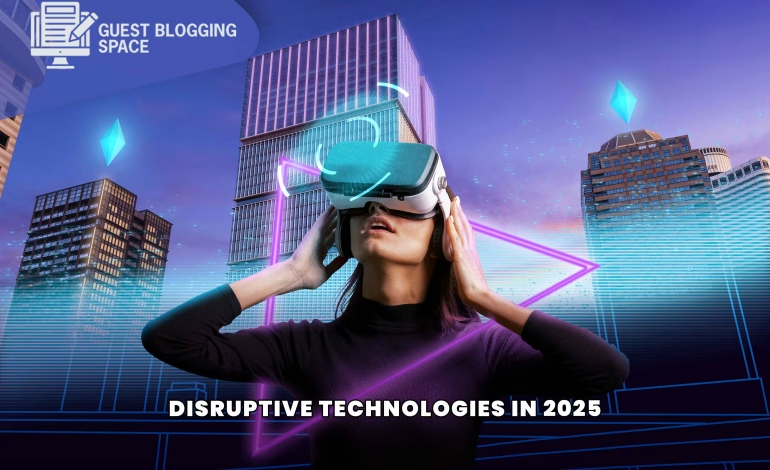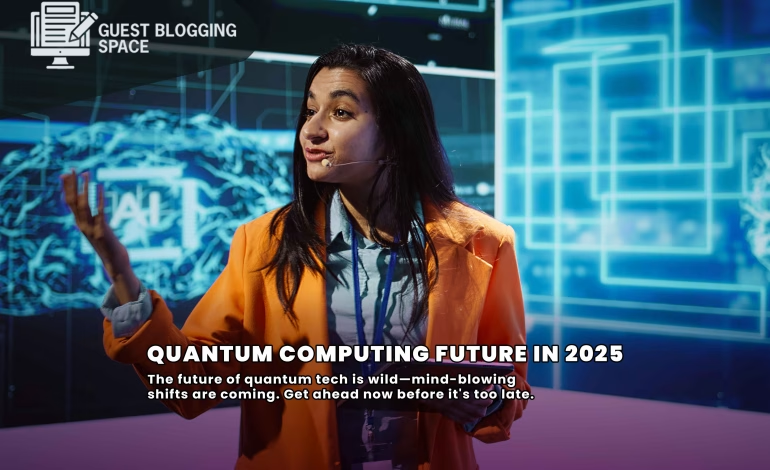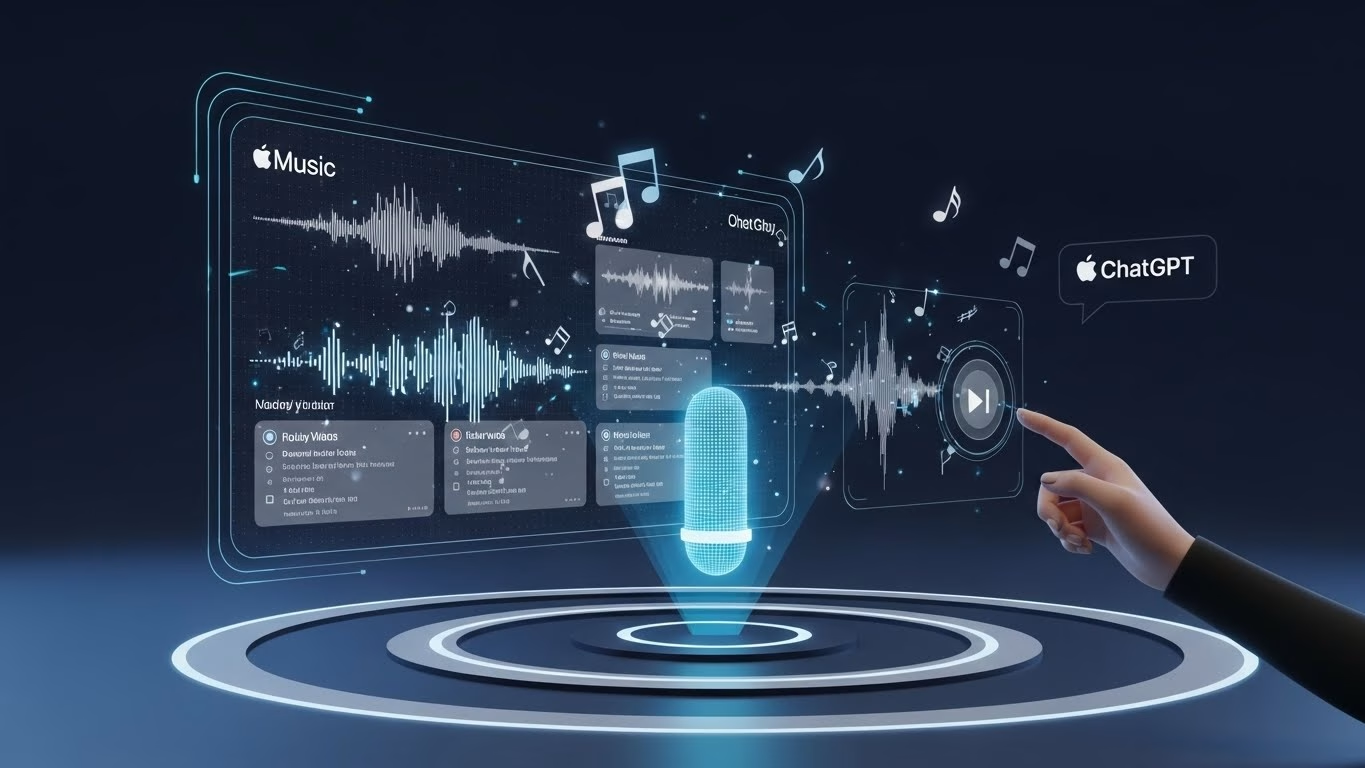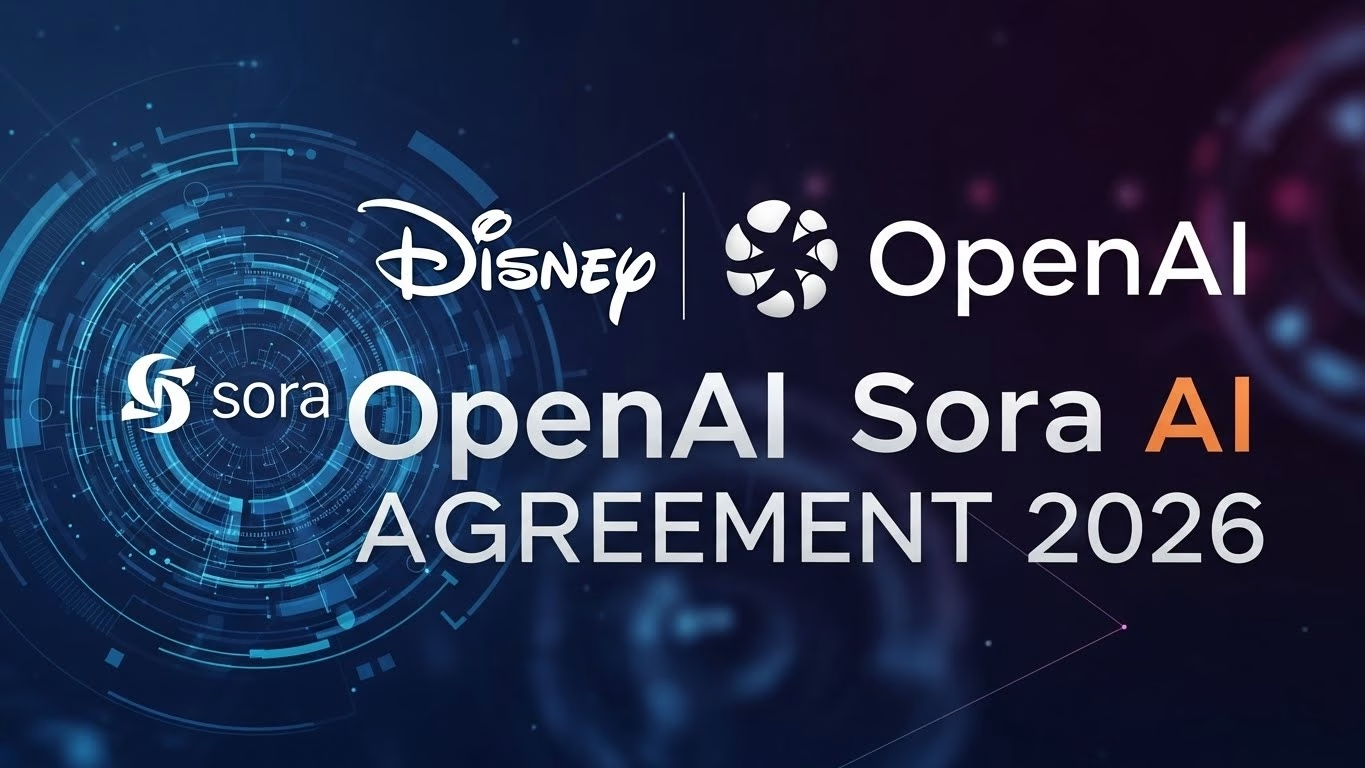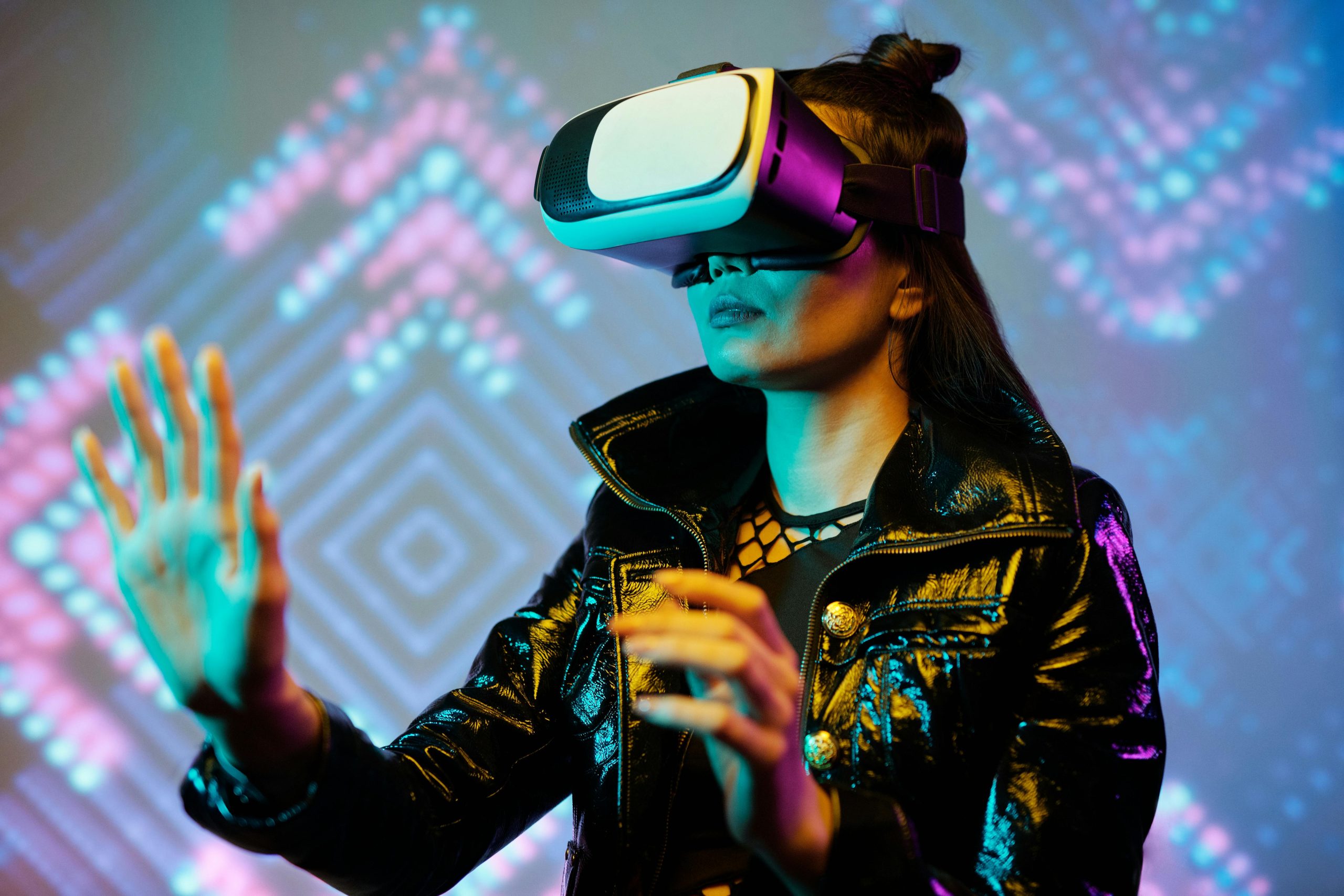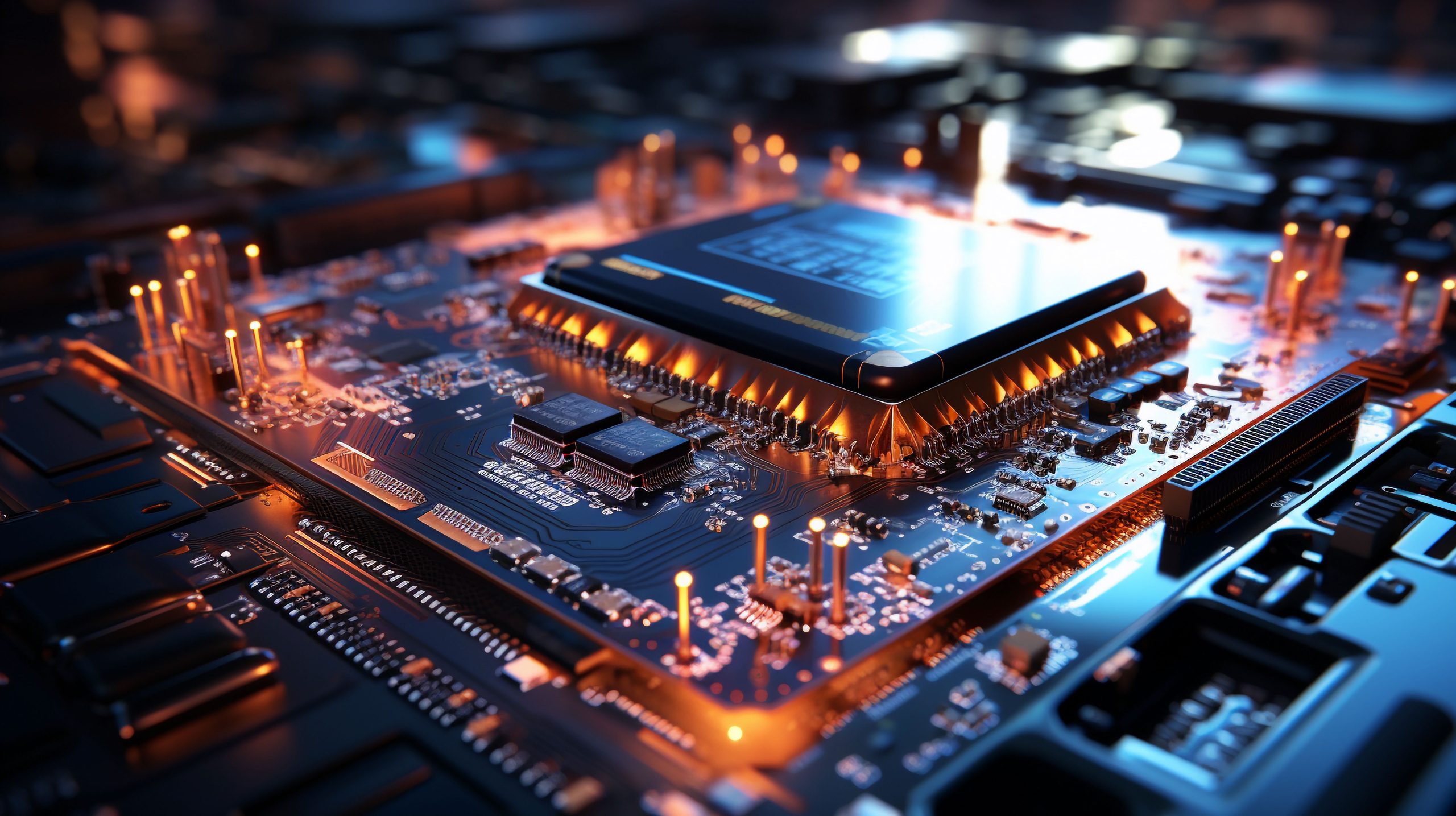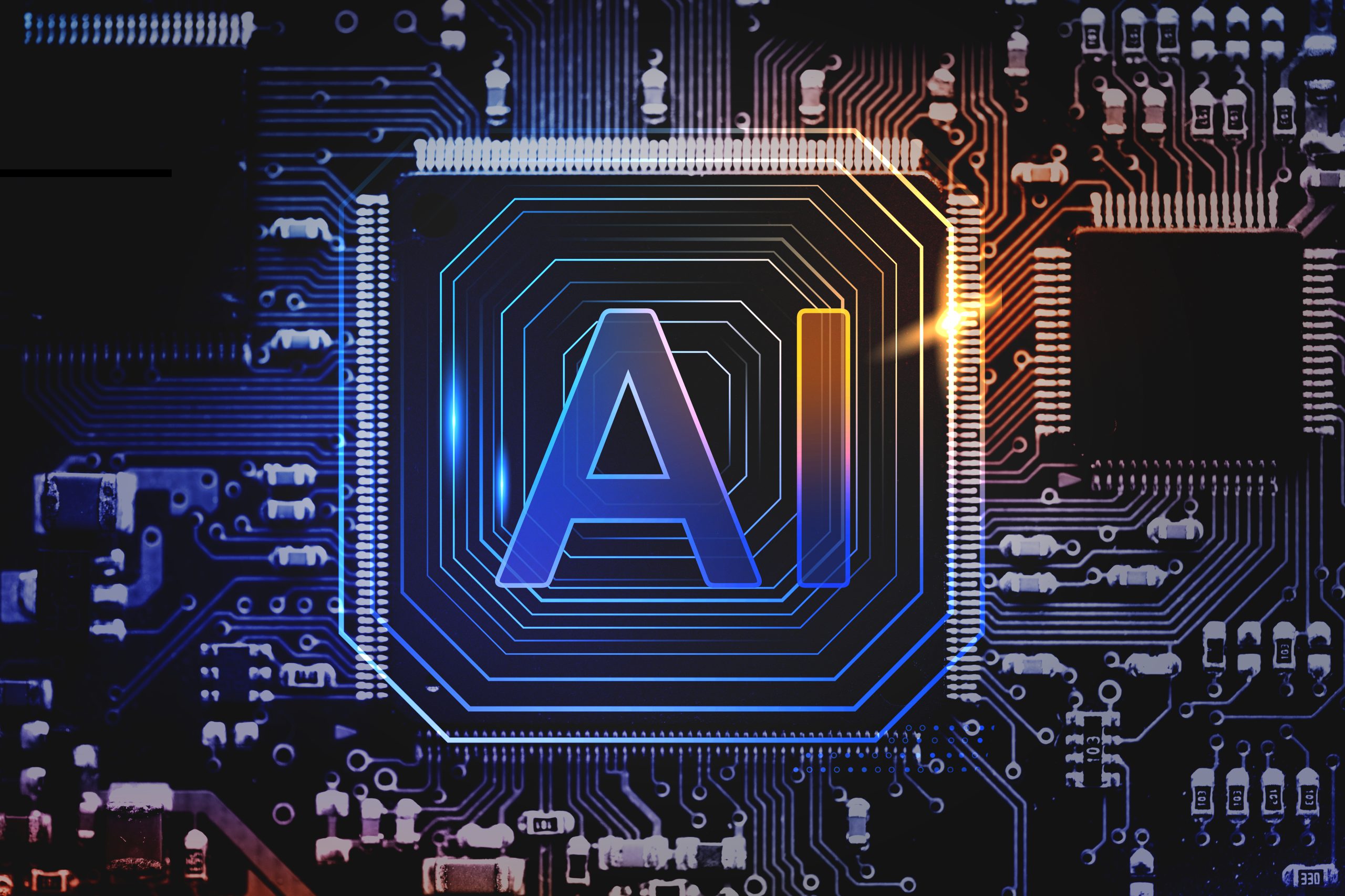How the Future of Artificial Intelligence Will Change 2025
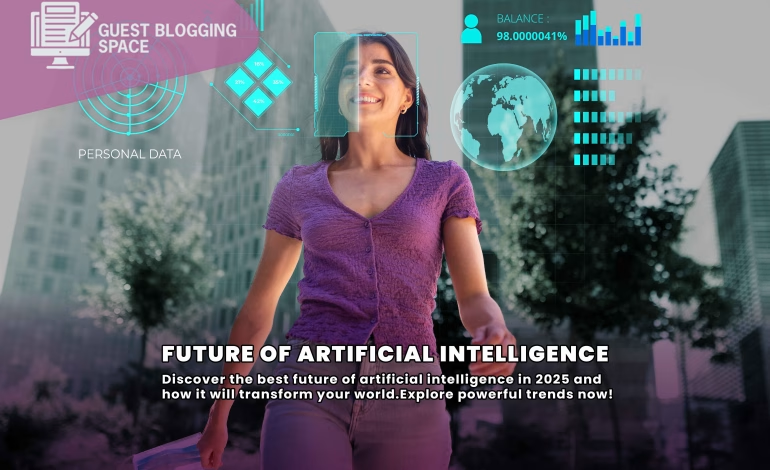
AI: The use of machines and computers to do things that typically require human intelligence, including the future of artificial intelligence. These are tasks like comprehending language, identifying images, making decisions, and learning from experience. While most software works according to a pre-set list of instructions, AI systems are designed to learn and improve their performance by analyzing data.
Put simply, AI is about teaching a computer to “think” or “learn” so that it can solve problems, automate tedious work, or help humans with difficult tasks. Every day, examples of the future of artificial intelligence include virtual assistants such as Siri and Alexa, recommendation systems on streaming services like Netflix and Amazon, and cars that drive themselves.
Brief History and Evolution of AI:
From Rule-Based Systems to Deep Learning
The quest for AI began decades ago, when early innovators conceived of machines that could do the work of humans. The early AI systems were rule-based, they consisted of hard-coded logic and predefined rules that were fed into the system by the programmers. These architectures were effective at particular tasks but were inflexible in shaping the future of artificial intelligence.
In the 1980s and ’90s, A.I. advanced with the rise of machine learning — computers’ ability to learn from data rather than follow explicit programming rules. This was a significant leap that enabled AI to see patterns and predict outcomes from experience, shaping the future of artificial intelligence.
The big breakthrough came in the 2010s with deep learning, a subfield of machine learning inspired by the human brain’s neural networks. Deep learning employs large layers of highly connected nodes (neurons) to process large amounts of data, driving the future of artificial intelligence.
Why the Future of AI Matters Now More Than Ever
AI is no longer a science fiction – it is fast becoming an inseparable component of our personal lives and the global economy. Its capability of changing the impacts in industries, making services more efficient and helping to address complex issues is massive. Whether you consider the advances in healthcare and individualized education, the more intelligent transportation system, or approaches to the climate crisis management, the future of artificial intelligence is going to transform the world in a way that it is never been before.
Yet, power comes with a lot of responsibility. Ethical dilemmas, fear of losing jobs to AI, the threats to privacy, and the necessity of adequate regulation are other issues cultivated by the emergence of AI. It is imperative that people, companies and governments acquire more knowledge on AI and its effects on the future of artificial intelligence in order to make informed decisions.
2. Key Drivers and Current State of AI Technology
Key AI Technologies:
Machine Learning, Generative AI, Quantum AI
Multifaceted technologies are the drivers of Artificial Intelligence and they allow machines to learn, change and develop difficult functions. These most prominent ones are:
- Machine Learning (ML): ML is a process of training an algorithm using massive amounts of data to enable them to learn patterns and make judgments without being programmed. It is applied extensively in image recognition, speech processing and recommendation systems.
- Generative AI: Generative AI is a branch of AI aimed at generating something new like: text, images, and music even video. Generative AI, such as GPT (which runs this chat) and DALL·E can also generate human-like creative content.
- Quantum AI: This new technology integrates quantum computing and AI to solve some issues that cannot be addressed using a classical computer at present.
- Quantum AI has the potential to transform optimization and cryptography and machine learning though it is still early and fledgling.
Recent Advances, Breakthroughs, and Emerging AI Tools
In the past few years, recent breakthroughs in algorithms, computing power, and the availability of data have witnessed enormous improvement in AI. Among major breakthroughs, there are:
Modeling language in natural language processing (NLP) allows one to create products that intuitively process language and be able to generate language with a high degree of accuracy.
- Superhuman level AI performance on complex games such as Go and poker.
- Medical diagnostics based on AI which diagnose certain diseases at earlier stage more accurately.
- Learning how to develop autonomous robots that can navigate in unpredictable sets of environment.
New technologies like AI-driven coding aides, imaginative design applications as well as speech synthesis systems are bringing AI closer to the confines of proficient workers in all fields.
The Role of Big Data, Cloud Computing, and Democratization of AI
Modern AI has been facilitated by big data and cloud computing. Big data powers the machine learning model and enables it to get better with time. The utilized cloud such as AWS, Google cloud and Microsoft azure enables scalable infrastructure and thereby, businesses and developers find it easy to build as well as deploy solutions of AI requiring fewer upfront investments.
This democratization of AI is the fact that even small startups, as well as educational institutions, have access to powerful AI tools and resources and now that they can move quickly in terms of innovation and adoption, everywhere in the world.
Most Advanced AI Systems Today
Leading organizations have developed some of the most sophisticated AI systems to date, including:
- OpenAI’s GPT series: Advanced language models capable of understanding and generating human-like text.
- DeepMind’s AlphaFold: Revolutionizing protein folding predictions, impacting biology and medicine.
- Tesla’s Autopilot: A cutting-edge autonomous driving system continuously improving through real-world data.
- IBM Watson: Applied in healthcare, finance, and customer service for data analysis and decision support.
These systems showcase the potential and diversity of AI applications shaping the future.
3. AI Transforming Industries
Healthcare:
Diagnosis, Treatment, Surgical Robotics, Drug Discovery, and Personalized Medicine
AI is revolutionizing healthcare by enabling faster and more accurate diagnosis through medical imaging analysis and predictive analytics. AI-powered surgical robots assist doctors in performing minimally invasive procedures with precision. Additionally, AI accelerates drug discovery by analyzing vast datasets to identify potential compounds. Personalized medicine tailors treatment plans to individual patients based on genetic and lifestyle data, improving outcomes and reducing side effects.
Education:
Intelligent Classrooms, Tailored Learning, and Data Privacy Issues
In education, AI creates smart classrooms that adapt teaching methods and materials to each student’s learning style and pace. Adaptive learning systems offer customized instruction, enabling students to better understand challenging concepts. However, the integration of AI in education raises important questions about data privacy and ethical use of student information, which must be addressed responsibly.
Finance and Banking:
Fraud Detection, Automation, Robo-Advisors, and Risk Management
Financial institutions use AI to detect fraudulent activities by recognizing unusual patterns in transactions. Automation streamlines routine tasks such as customer service and compliance checks. Robo-advisors provide personalized investment advice based on market trends and user profiles. AI-driven risk management tools help banks anticipate market fluctuations and regulatory challenges, making financial systems more resilient.
Transportation and Mobility:
Self-Driving Vehicles, Air Traffic Control, and Smart Cities
AI-driven autonomous vehicles aim to enhance road safety and improve traffic flow by minimizing accidents and reducing congestion. Smart city initiatives use AI to monitor infrastructure, optimize energy consumption, and improve public safety, creating sustainable urban environments.
Business and Marketing:
Predictive Analytics, Chatbots, Personalization, and Workflow Automation
Businesses leverage AI for predictive analytics, gaining insights into consumer behavior and market trends. AI-driven chatbots provide 24/7 customer support, improving user experience. Personalization engines recommend products and services tailored to individual preferences. Workflow automation tools increase operational efficiency by handling repetitive tasks, allowing employees to focus on higher-value activities.
Creative Industries:
AI in Music, Art, Film, and Intellectual Property Issues
AI is pushing the boundaries of creativity by generating music, artworks, and film scripts. Tools like AI-driven composition and video editing enhance artistic processes. However, this raises important questions about intellectual property rights and the originality of AI-created content, requiring new legal frameworks.
Government and Public Policy:
Smart Governance, Public Safety, Surveillance, and Privacy
Governments employ AI for smart governance by analyzing data to improve public services and decision-making. AI enhances public safety through predictive policing and emergency response systems. Yet, the use of AI in surveillance sparks debates about privacy rights and the balance between security and civil liberties.
4. The Future of Artificial Intelligence
AI Predictions for 2030 and Beyond
Experts predict that by 2030, AI will become deeply integrated into everyday life, enhancing productivity and creativity. We can expect smarter personal assistants, advanced healthcare diagnostics, and AI-driven decision-making in business and government. However, rapid progress will also require careful management of ethical and societal challenges.
Emerging Technologies:
Multimodal AI, Agentic AI, Neuromorphic Computing, AIoT, and Quantum AI
- Multimodal AI: AI systems that can process and integrate multiple types of data such as text, images, and audio simultaneously, enabling more natural interactions.
- Agentic AI: Autonomous AI agents capable of making decisions and acting independently in complex environments.
- Neuromorphic Computing: Hardware designed to mimic the human brain’s structure, leading to faster and more energy-efficient AI.
- AIoT (AI + Internet of Things): The fusion of AI with connected devices to create intelligent edge computing systems for real-time processing.
- Quantum AI: Leveraging quantum computing power to solve problems beyond classical computers’ reach, revolutionizing optimization and machine learning.
AI in Space Exploration:
NASA, SpaceX, Autonomous Probes, and New Discoveries
AI plays a crucial role in space missions, from autonomous navigation of spacecraft to analyzing massive datasets from telescopes. NASA and SpaceX leverage AI to enhance mission planning and support robotic space exploration. AI-powered probes and rovers can explore distant planets with minimal human intervention, accelerating our understanding of the universe.
Regional AI Powerhouses:
The Global Race and International Policies
The global AI landscape is shaped by competition and cooperation among major powers like the United States, China, the European Union, and India. Each region invests heavily in AI research and infrastructure, aiming to lead in innovation and economic growth. International policies and treaties are evolving to address ethical concerns, data governance, and AI safety on a global scale.
5. Societal and Ethical Impacts of AI
Job Creation vs Job Disruption:
Automation and Augmentation
AI is transforming the workforce by automating routine tasks, which may displace certain jobs. However, it also generates new positions that demand advanced expertise in AI oversight, data analytics, and collaboration between humans and AI. The key is to focus on augmenting human abilities rather than replacing them entirely, enabling workers to engage in more creative and strategic work.
Privacy Risks, Biases, Deepfakes, and the Black Box Problem
AI systems rely heavily on data, raising concerns about user privacy and data security. Biases embedded in training data can lead to unfair or discriminatory outcomes, affecting decisions in hiring, lending, and law enforcement. Deepfakes and manipulated media challenge our ability to discern truth. Additionally, the “black box” nature of some AI models makes it difficult to explain their decision-making processes, undermining trust.
Ethical Dilemmas, AI Governance, and Accountability
As AI systems gain autonomy, ethical dilemmas arise regarding their decisions and impact. Questions of accountability—who is responsible when AI fails or causes harm—become critical. Developing ethical AI frameworks and governance structures ensures transparency, fairness, and adherence to societal values.
AI Regulation: Challenges and Global Cooperation
Regulating AI poses challenges due to its rapid development and diverse applications. Balancing innovation with safety and privacy requires adaptable policies. International cooperation is essential to create consistent standards, prevent misuse, and address cross-border implications of AI technologies.
How AI Contributes to Combating Climate Change and Promoting Environmental Sustainability
AI contributes to combating climate change by optimizing energy consumption, predicting environmental changes, and supporting sustainable agriculture and wildlife conservation. Smart systems powered by AI enable better resource management, helping reduce humanity’s ecological footprint.
6. Philosophical and Futuristic Perspectives
The Singularity:
What Is It and When Might It Happen?
The technological singularity refers to a hypothetical future moment when AI surpasses human intelligence, leading to rapid and unpredictable advancements. Some experts predict it could happen within decades, while others remain skeptical. This concept raises profound questions about control, ethics, and the future of humanity.
Artificial General Intelligence (AGI):
Definition, Benefits, Risks, and Progress
AGI represents AI systems with the ability to understand, learn, and apply knowledge across diverse tasks—essentially, human-level intelligence. Achieving AGI could revolutionize industries and solve complex global problems, but it also carries risks such as loss of control and existential threats. While research continues to progress, Artificial General Intelligence (AGI) is still considered a long-term objective.
Will AI Surpass Human Intelligence?
While narrow AI already outperforms humans in specific domains, surpassing human intelligence broadly involves mastering creativity, emotional understanding, and general reasoning. Whether AI will achieve this remains debated in the future of artificial intelligence. Some foresee a cooperative future where humans and AI complement each other’s strengths.
The Future of Human-AI Collaboration
Or maybe than supplanting people, the future likely includes synergistic collaboration. AI can handle data-intensive and dreary errands, liberating people to center on imagination, sympathy, and complex problem-solving. This organization might open uncommon advancement and efficiency in the future of artificial intelligence.
7. Getting Ready for the Future of AI
How to Upskill:
Certifications and Learning Paths
To thrive in an AI-driven world, individuals need to acquire new skills such as data literacy, machine learning basics, and AI ethics. Numerous online platforms offer certifications and courses tailored to beginners and advanced learners alike. Ongoing learning is essential for maintaining relevance in the future of artificial intelligence and rapidly changing job markets.
Business Strategies to Embrace AI
Businesses can benefit from adopting AI by identifying areas for automation, enhancing customer experiences, and leveraging data for strategic decisions. Developing a clear AI roadmap, investing in employee training, and fostering a culture of innovation are essential steps for successful integration.
Resources and Tools for Staying Updated
Staying informed about AI advancements is crucial. Trusted sources include academic journals, AI conferences, industry reports, and community forums. Open-source AI tools and platforms offer hands-on experience for professionals and enthusiasts.
Join the Conversation:
Engaging with the AI Community
Engaging with AI experts, policymakers, and enthusiasts through online communities, webinars, and workshops helps individuals contribute to shaping the future of artificial intelligence. Public discourse on AI ethics, regulation, and societal impact ensures diverse perspectives are considered.
Related Articles :
Top 7 Latest Tech Innovations Transforming 2025
10 Exciting Future Technology Trends That Will Change Everything
Top Marketing Tools Every Small Business Should Be Using Today
The Future of Artificial Intelligence | IBM
Frequently Asked Questions (FAQs)
What does the future hold for AI over the next 10 years?
AI will end up more coordinates into regular life, driving development in healthcare, education, trade, and more, whereas raising imperative moral and administrative challenges in the future of artificial intelligence.
Will AI replace all human jobs?
AI will automate some tasks but is more likely to augment human work, creating new jobs and requiring workers to develop new skills for the future of artificial intelligence.
How can we ensure AI is ethical and fair?
By implementing transparent algorithms, reducing biases in training data, establishing regulations, and fostering inclusive AI development, the future of artificial intelligence can be more ethical and equitable.
What is the difference between AI and AGI?
AI typically refers to specialized systems designed for specific tasks, while AGI denotes machines with general human-level intelligence across diverse domains, marking a significant milestone in the future of artificial intelligence.
Is AI dangerous for humanity?
While AI poses risks such as job displacement and misuse, responsible development, regulation, and global cooperation can mitigate these dangers in the future of artificial intelligence.
How will AI affect everyday life?
AI will enhance convenience, personalization, and efficiency in activities ranging from shopping to healthcare and transportation, shaping the future of artificial intelligence.
Can AI be creative like humans?
AI can generate creative works like art and music, but whether it can truly replicate human creativity remains a topic of debate in the future of artificial intelligence.
What are the biggest industries AI will disrupt?
Healthcare, finance, education, transportation, manufacturing, and creative industries are among those most affected by advancements in the future of artificial intelligence.
How is AI used in education today?
AI powers adaptive learning platforms, personalized tutoring, and smart classroom tools, helping tailor education to individual needs through advancements in the future of artificial intelligence.
Which skills will be most valuable in the era of AI?
Skills in data analysis, machine learning, critical thinking, creativity, and ethical understanding of AI technologies will be in high demand in the future of artificial intelligence.

